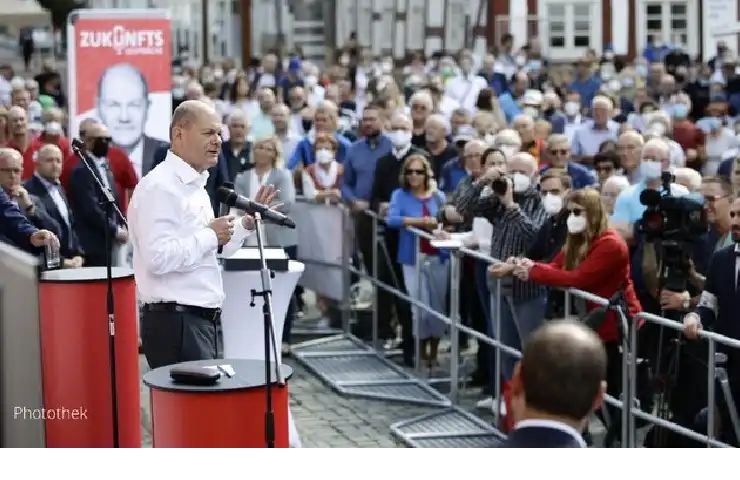Germany's Social Democrats narrowly forged ahead of Angela Merkel’s Conservative party in the projected results of Sunday's national election and claimed they were in a position to lead a coalition government for the first time since 2005.
The centre-left Social Democrats (SPD) were on track for 26.0% of the vote, ahead of 24.5% for Merkel's CDU/CSU conservative bloc, projections for TV broadcaster ZDF showed, but both groups believed they could lead the next government.
With neither major bloc commanding a majority, and both reluctant to repeat their awkward "grand coalition" of the past four years, the most likely outcome is a three-way alliance led by either the Social Democrats or Merkel's conservatives, according to a Reuters report from Berlin.
However, it could even take months for a new coalition to take shape, and will likely involve the smaller parties such as the Greens and liberal Free Democrats (FDP), according to local media reports. Merkel would continue in a caretaker role as the Chancellor.
The SPD's increase in vote share from 20.5% in the 2017 national election, reflects a swing to the left for Germany.
"We are ahead in all the surveys now," the Social Democrats' chancellor candidate Olaf Scholz said in a round table discussion with other candidates after the vote.
Scholz, 63, would become the fourth post-war SPD chancellor after Willy Brandt, Helmut Schmidt and Gerhard Schroeder. He was the finance minister in Merkel's cabinet.
Scholz's conservative rival Armin Laschet, signalled his bloc was not ready yet to concede, though his supporters were subdued. Laschet had dented his party’s vote share as he was caught smiling on camera during a visit to the flood-hit areas where people were going through an unprecedented tragedy.
"It hasn't always been the first-placed party that provided the chancellor," Laschet, 60, told the round table.
Schmidt ruled in the late 1970s and early 1980s in coalition with the FDP even though his Social Democrats had fewer parliamentary seats than the conservative bloc.
Scholz and Laschet both said they would aim to strike a coalition deal before Christmas.
Politcial analysts say that moderate centrism has prevailed in the German election unlike the populism that has come to the fore in other European countries.
The projected results for ZDF showed the far-right Alternative for Germany (AfD) on track for 10.5%, worse than four years ago when they won 12.6% of the vote.




















